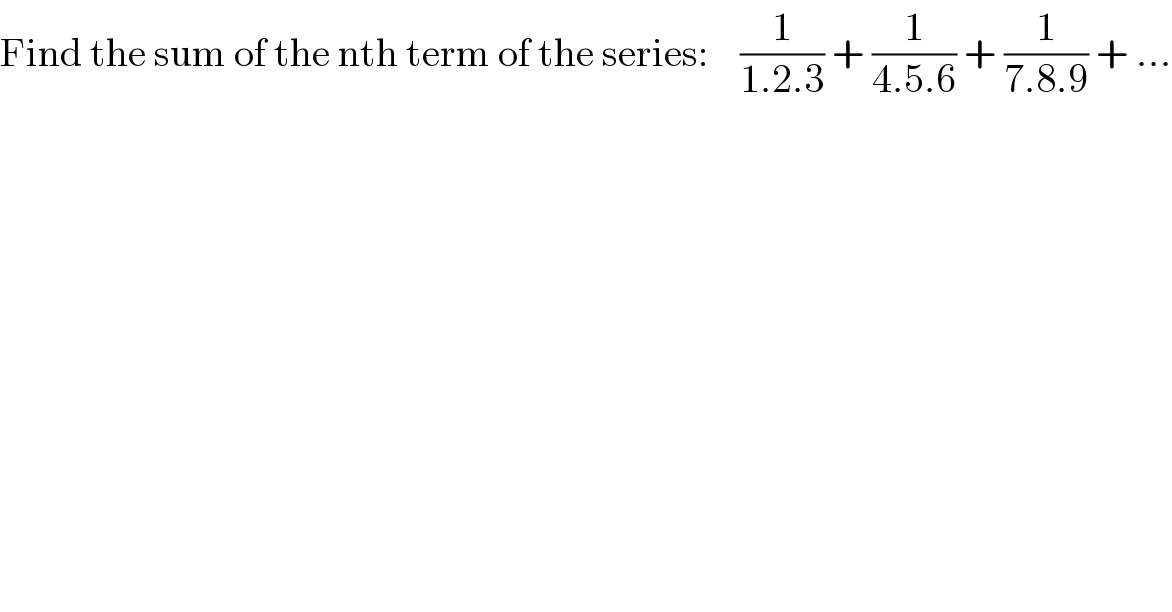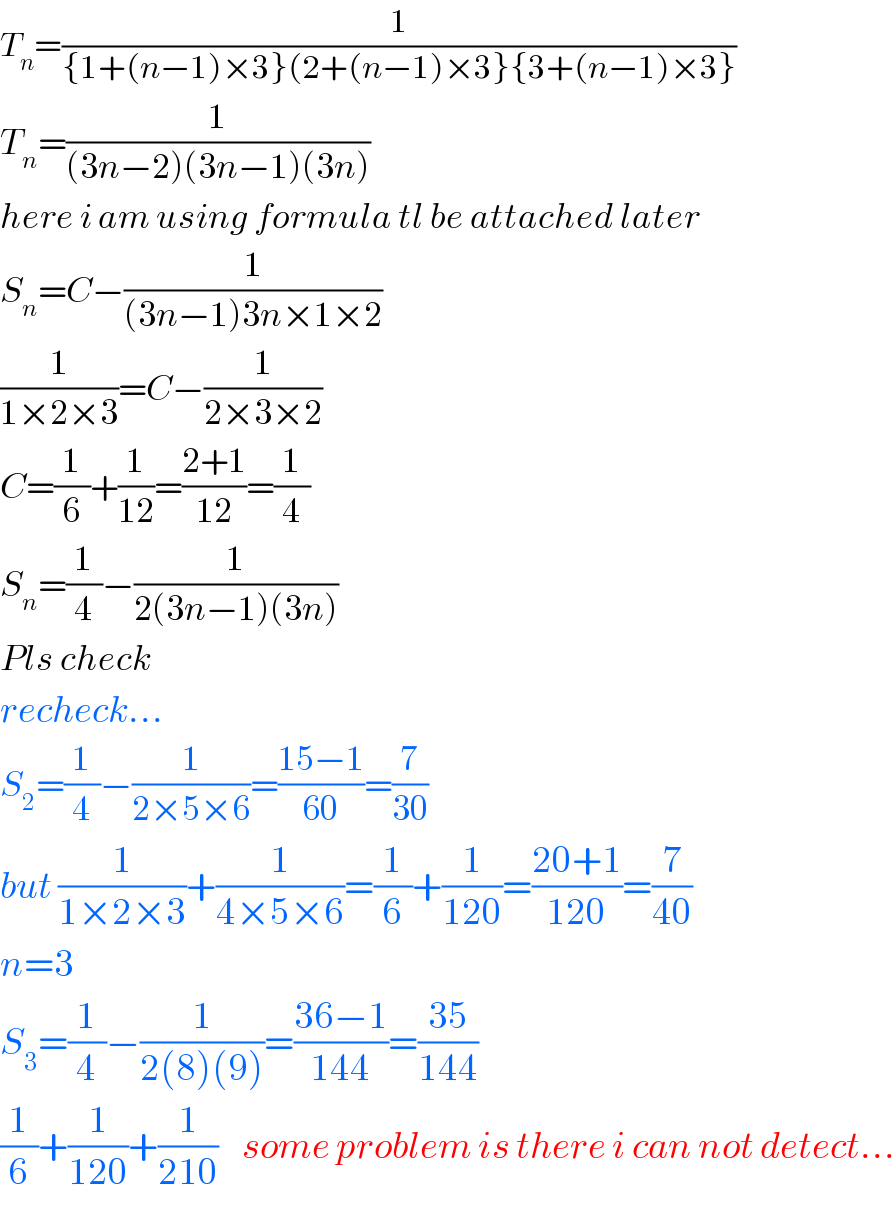
Question and Answers Forum
Question Number 44986 by Tawa1 last updated on 07/Oct/18

Commented by tanmay.chaudhury50@gmail.com last updated on 07/Oct/18

Answered by tanmay.chaudhury50@gmail.com last updated on 07/Oct/18

Commented by Tawa1 last updated on 07/Oct/18

